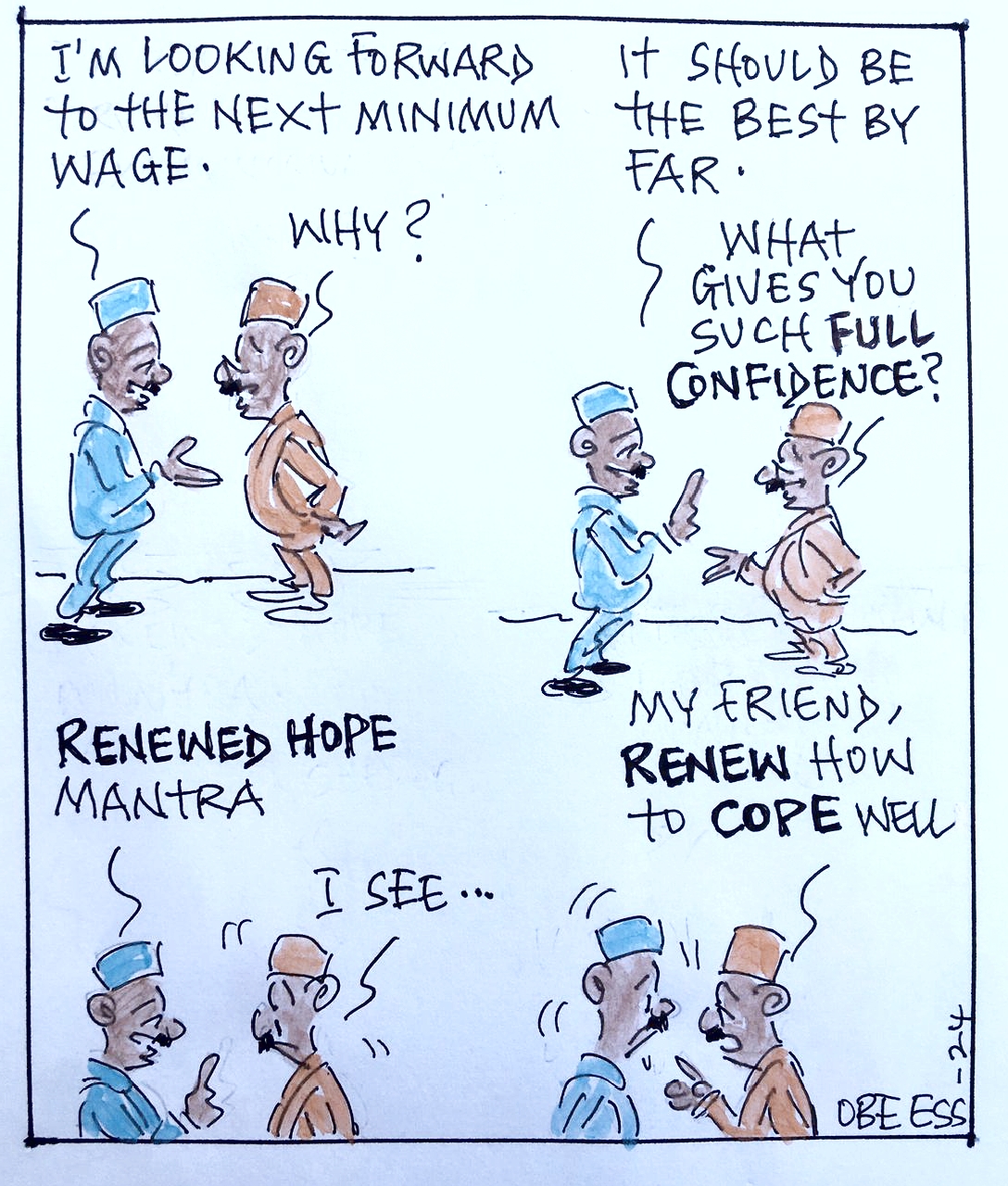
Tag: minimum wage
-

The minimum wage issue: Numbers vs value – By Dakuku Peterside
The issue of minimum wage or salary increase or by whatever nomenclature is a complicated policy issue. The wage increase is neither good nor bad, but as a policy choice, it must be tied to some ultimate objective and benchmarked on the projected cost of living and inflationary trends over a given period. A pay rise can improve employees’ motivation while giving them more purchasing power and disposable income. It may result in businesses being shut down, hyperinflation, joblessness, and a decline in the value of the national currency. At face value, salary increases are a tool to address inequality, poverty, and welfare or an incentive to check corruption. However, the issue is more profound than this surface-level discourse.
Recently, the federal government announced a new salary raise for mainstream federal workers. This is not the new minimum wage; at least, that is what we are told. Some state governments followed suit with discordant tunes. The truth is that for the average Nigerian worker, with headline inflation at 33.2% by March 2024 and food inflation at 40.1%, the current wage is insufficient and cannot sustain any worker. This underscores the need for the government and all labour employers in Nigeria to review salaries. However, the government’s current economic realities and financial position make it challenging to create a salary increase that is not backed by increased value and productivity. While it may seem complicated, this measured approach is necessary to avoid harsh negative implications on the economy and the unintended backlash on people with low incomes and many on the fringes of our society.
Expectedly a policy to help people experiencing poverty and create some semblance of equity within our socio-economic ecosystem, salary increases for government workers, albeit less than 25% of the workforce, will have ramifications. Given these difficulties evident in the new policy, the government and labour leadership must play a balancing act to midwife a new salary structure that is fit for purpose yet germane to the multifaceted nuances of our current economic reality.
The wage increase will result in both negative and positive economic impacts. On the negative side, inflation will worsen, small and medium-scale businesses (SMEs) barely managing to survive will be hugely impacted, and the cost of doing business will skyrocket. How many SMEs can afford this increase? Most of the companies are struggling with paying the existing minimum wage, given the rise in the cost of doing business, interest in loans is over 40%, the cost of raw materials is over the roof, consumers with little income are squeezed to a pulp by the constant increase in prices. Besides, how many state governments can afford it? Most Nigerian states have failed to optimize their potential and go cap in hand every month to FAAC. Across a sizeable economic terrain like Nigeria, a uniform nationwide minimum wage may be foolhardy. Costs of living are divergent across the country. States should negotiate with labour unions for acceptable minimum wage structures in different states and geopolitical zones. There may be an urgent need to de-link the minimum wage issue from national politics.
On the positive side, wages should increase in tandem with the cost of living. It will keep workers motivated and may even help the economy rebound. A living wage is not only desirable but expedient. What Nigerian workers earn today is a “symbolic wage” and has no practical bearing on reality. The federal minimum wage, currently at N30,000, was last raised in 2019 when the inflation rate was 11-12%. The purchasing power of the naira has since been eroded by 276% (compared to the 2019 rate). Nigeria is ranked 44th in Africa for minimum wage, according to Prof. Kemi Okuwa of the Nigerian Institute of Social and Economic Research. These factors indicate the need for a wage increase to address the growing disparity between wages and the cost of living.
When implementing wage increases, the government must exercise caution to ensure that its devotion to its responsibility does not have the reverse impact. The government must develop a robust economic plan to reduce cost of living as well mitigate the ripple effects on low-income workers, SMEs, and the macroeconomy. We remember the infamous Udorji’s Commission saga and its economic impact. Many economic historians have pointed to the significant shake-up of the salary structure by the Udorji Commission as one of the major problems of Nigeria’s economy in the 1970s that upended our pricing system and created significant price inflation in the economy. We must learn from history! A situation where the monetary reward for work is increased but not based on productivity will often lead to unwarranted inflation.
Productivity and added value creation should be a significant consideration among many bases for ascribing monetary wage increases, not just policy or legislation. Can the government link the increase in public servants’ wages and salaries to measurable productivity? Any increase in the cost of production and labour at this point, with no corresponding increase in added value to production, is not sustainable and often is an aberration to the system. Therefore, a balanced approach that considers both the need for increased wages and the economic reality of our country is crucial. This will ensure that our wage policy is fair and sustainable in the long run.
The problem with government-induced increase is that only a limited number of workers, civil servants at the federal level, will get the money; many states may claim they need the means to pay that. Even if the state civil services pay that, combined with the federal civil service, they make up less than 25% of the employed workforce in Nigeria. Most of our workforce comprises low-wage workers, whom SMEs and Organized Private Sector firms employ. These small businesses are struggling to pay the N30,000 per month minimum wage, much more than the new minimum wage. This minimum wage will make these workers poorer if they do not get it like the civil servants because they all buy from the same market.
Besides, making unenforceable laws does not make sense. In other climes, it is against the law not to pay the minimum wage. It is enforced with explicit punishment for breaking the law. In Nigeria, this is different. Nothing happens even if any tier of government fails to pay the minimum wage. Most businesses will completely ignore the new salary structure, and there will be no legal consequences. The government must put some teeth to the new minimum wage rule for equity and justice and at least make it stick across the board. It must also consult widely and make the minimum wage more realistic.
I understand the need for an increase in salary because of hyperinflation that has eroded purchasing power. However, I am preaching caution and a measured approach to dealing with this issue by considering all the ramifications and putting measures in place to cushion unintended consequences. Our recent experience has shown that a salary increase may start a merry-go-round of cyclical inflation that begins with a salary increase, and then inflation eats up the value, and then we are back to where we started. In an economy with over 40% food inflation, all stakeholders must apply caution and careful measures in implementing a new salary structure. However, governments (federal, state, and local) cannot afford to play politics with the issue of “living wage”.
The implications of creating new salary structures and increasing the minimum wage are complex and multifaceted, requiring careful consideration of various factors, including economic conditions, industry dynamics, and social equity goals. Although I advocate for workers getting a living wage and meaningful salaries, given our current economic realities, a more measured approach based on value addition, productivity, and accountability will suffice. As the new wages are implemented, a corresponding demand for increased productivity must be implemented by all stakeholders to make the system sustainable.
I understand the need for government intervention in this, especially the political benefits to the government in terms of reasonable public opinion and support, good labour relations and collective bargaining dynamics, and the corresponding public and political debates and legislative actions this generates; however, the economic exigencies – potential job losses, negative impact on SMEs, and inflationary pressures – must be paramount and considered. A living wage is the right of every Nigerian, and we must fight for that to reduce income inequality gaps and fight multidimensional poverty. High productivity and less economic legislation are the way forward, and the current confusion in the debate over a minimum wage needs to be more holistic and better informed. All the variables must be on the table, devoid of political grandstanding.
-
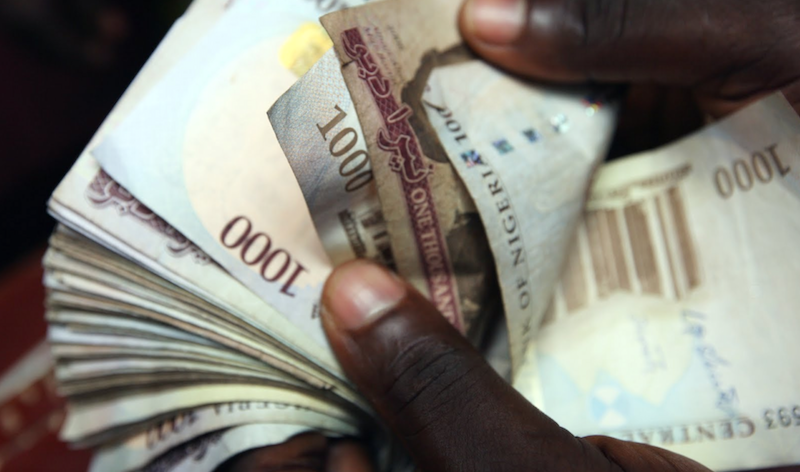
States Govs open up on paying improved minimum wage
The Nigeria Governors’ Forum (NGF) says state governments are reviewing their individual fiscal space and the consequential impact of various recommendations, to arrive at an improved minimum wage they can pay sustainably.
The forum stated this in a communique issued by its Chairman, Gov. AbdulRahman AbdulRazaq of Kwara, on Thursday in Abuja, after its meeting.
AbdulRazaq expressed the forum’s commitment to working with relevant stakeholders to achieve a better wage for Nigerian workers.
“Forum celebrates with workers across the country for their dedication to service and patience, as we work with the Federal Government, labour, organized private sector and relevant stakeholders in arriving at an implementable national minimum wage.
“While we acknowledge the various initiatives adopted of recent by way of wage awards and partial wage adjustments, it is imperative to state that the 37-member tripartite committee inaugurated on the National Minimum Wage, is still in consultation and yet to conclude its work.
“As members of the committee, we are reviewing our individual fiscal space as state governments and the consequential impact of various recommendations, to arrive at an improved minimum wage we can pay sustainably.
‘We remain committed to the process and promise that better wages will be the invariable outcome of ongoing negotiations,” he said.
AbdulRazaq also said that the forum received the World Bank outgoing Country Director, Mr Shubham Chaudhuri, and the incoming Country Director, Mr Ndiame Diop, to discuss the Bank’s vision for transitioning.
He said Chaudhuri commended the forum’s non-partisan character and its strategic role in coordinating collective action for developmental change.
The NGF chairman said that Chaudhuri also applauded commitment of state governments to mutual accountability mechanisms such as performance-based financing interventions by the Bank.
AbdulRazaq said that the forum expressed confidence in the choice of Diop, to lead the collaboration going forward, and look forward to a sustained and deepened relationship.
He said that the forum also discussed the revised National Policy on Justice (2024 -2028) from the just-concluded National Summit on Justice on April 24 to April 25.
The Kwara governor added that the governors agreed to consider the submissions from the summit as might concern their individual states.
These, according to him, include the recommended legal amendments, administrative improvements, and policies to strengthen the justice sector.
He expressed the forum’s commitment to considering issues bordering on remuneration of state judicial officers and the infrastructure of the courts.
AbdulRazaq said that governors also received a presentation from the National Human Capital Development (HCD) Programme – Core Working Group Secretariat- led by Ms. Rukaiya El-Rufai and Dr Ahmad Abdulwahab.
The presentation, according to him, highlighted the marginal progress made by states and its contribution to Nigeria’s Human Development Index (HDI), especially across health, nutrition, education, and labour force participation.
“Having reviewed the previous programme design and national strategy, a revised governance and implementation roadmap was proposed to scale up impact and ensure sustainability.
“Members pledged to support the effective domestication of proposed revisions to the national health coverage strategy” he said.
AbdulRazaq said that the forum also received delegation of State Action on Business Enabling Reforms (SABER), Federal Ministry of Finance Programme Coordination Unit.
He commiserated with the Gov. Siminalayi Fubara of Rivers and his Ogun counterpart, Gov. Dapo Abiodun over the petrol tanker explosion and gas explosion that occurred in their states on April 26 and April 27 respectively.
The NGF Chairman called for proper maintenance of trucks, especially those fitted to convey Compressed Natural Gas (CNG) and recommended appropriate training for truck drivers.
On enforcement of regulations, he said forum resolved to engage relevant Ministries, Departments and Agencies (MDAs), in order to align the activities of federal regulators with the operations of officials at the sub-national level.
-
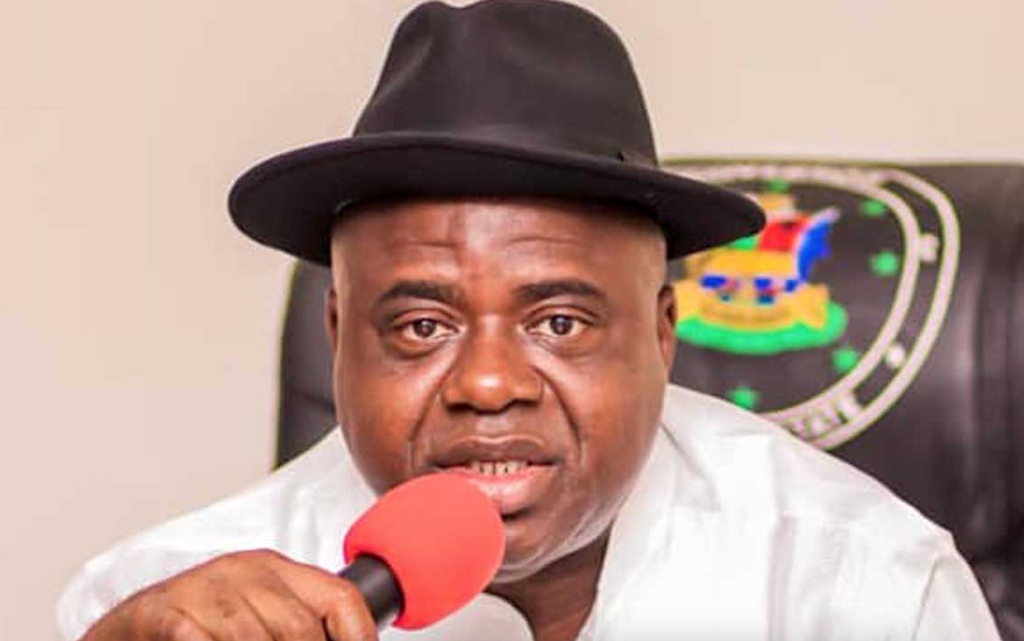
Diri sets up committee on new minimum wage
Gov. Douye Diri of Bayelsa has set up a committee to work out modalities for implementation of a new minimum wage for workers in the state’s civil service.
The committee is headed by Secretary to the State Government, Prof. Nimibofa Ayawei.
Other members included the Head of Service, Mrs Biobelemoye Charles-Onyeama, the Commissioner for Finance, Maxwell Ebibai, his Labour, Productivity and Employment counterpart, Ebiuwou Koku-Obiyai and the Chief of Staff, Government House, Mr Peter Akpe.
The committee has the end of May 2024 to submit its report.
Diri made the pronouncement on Wednesday at the 2024 Workers Day celebration at the Peace Park in Yenagoa.
The governor assured that his administration would implement a new minimum wage once the committee submitted its report, adding that the state workers always have emoluments as their federal counterparts.
Diri stressed that the welfare of workers had always been a top priority of his administration as attested to by the numerous worker-friendly policies he initiated.
He equally promised to commence the building of a new befitting secretariat complex for civil servants to accommodate the increasing workforce.
The state’s helmsman, who described workers as the backbone of development in society, attributed the achievements in his first tenure to the support and contributions of civil servants.
He called for continuous harmonious working relationship with his government in order to bequeath lasting legacies.
The Bayelsa helmsman also approved an annual step increment for civil servants, release of funds for completion of the state secretariat of the Nigeria Labour Congress (NLC) and the Trade Union Congress (TUC).
“The committee is to immediately look into what the Federal Government has done on the proposed minimum wage and see the possibility of domesticating it in Bayelsa.
“It is given until the end of May to submit its report.
“My dear workers of Bayelsa, you have done so well. You know that you are the engine room of this government. We have succeeded because you have done so well. We receive commendations everywhere we go.
“In terms of infrastructure, human capacity building and other sectors, we have done well. I say you should continue to keep it up.”
According to him, together, we are building a Bayelsa of our dreams, a beacon of hope, a model of progress and a testament to our unity of purpose.
“The tangible evidence of these fruitful collaborations is that abundantly, we have made it clear for all to see in the plethora of transformative legacy projects that now span the length and breadth of our state, touching the lives of all Bayelsa people.
“Let us continue to work together so that the future of our state will be established.
“Beyond the ongoing renovation, we will look at the option of building a new state-of-the-art secretariat complex to accommodate the expanding workforce,” he said.
Earlier, the workers eulogised the governor for his labour-friendly policies that had improved their working condition.
In a joint address by the chairman of the NLC, Comrade Barnabas Simon, and his TUC counterpart, Comrade Laye Julius, the workers specifically thanked the governor for approving payment of wage award to all categories of workers in Bayelsa.
“We thank you for the regular conduct of promotion exercises and implementation, prompt payment of salaries of workers and pensioners, among others.
“Organised labour in Bayelsa is most sincerely grateful for your kind and favourable disposition to the needs and aspirations of workers in the state.
“Your open-door policies and swift response to most of our demands in the last four years is highly appreciated,” they said.
They, however, appealed for an upward review of the wage award, improved transportation system for workers, and mapping out of acquired lands for civil servants.
-

35% salary increase not minimum wage – Labour clarifies
The Association of Senior Civil Servants of Nigeria (ASCSN) has clarified that the 25 per cent and 35 per cent increase in workers’ salary announced by the Federal Government is not minimum wage.
The President of the association, Mr Tommy Okon, made the clarification while fielding questions from newsmen on Wednesday in Abuja.
Okon, who is also the Vice President of the Trade Union Congress (TUC), said that the approval of the salary increase was to close the salary gap that existed in some Ministries, Departments and Agencies.
“Other sectors have benefitted from these increases, it is only the core Federal Civil Service. So, it is a good development no doubt, but the people need to be informed.
“Some even saw it as if the government had ambushed the labour unions and then come out unilaterally to increase the minimum wage to that amount. Whereas, it is not the minimum wage.
“The minimum wage is ongoing ,what the government did was to correct some gaps that existed among the pay of those in that sectors listed,” he said
Okon said the clarification was important for the generality of workers and the masses at large that the salary increase was to bridge wage gap in the civil service.
The federal government on Tuesday announced increase of between 25 per cent and 35 per cent in salary of civil servants on the remaining six consolidated salary structures.
They include Consolidated Public Service Salary Structure (CONPSS), Consolidated Research and Allied Institutions Salary Structure (CONRAISS) and Consolidated Police Salary Structure (CONPOSS).
Others are Consolidated Para-military Salary Structure (CONPASS), Consolidated Intelligence Community Salary Structure (CONICCS) and Consolidated Armed Forces Salary Structure (CONAFSS).
-
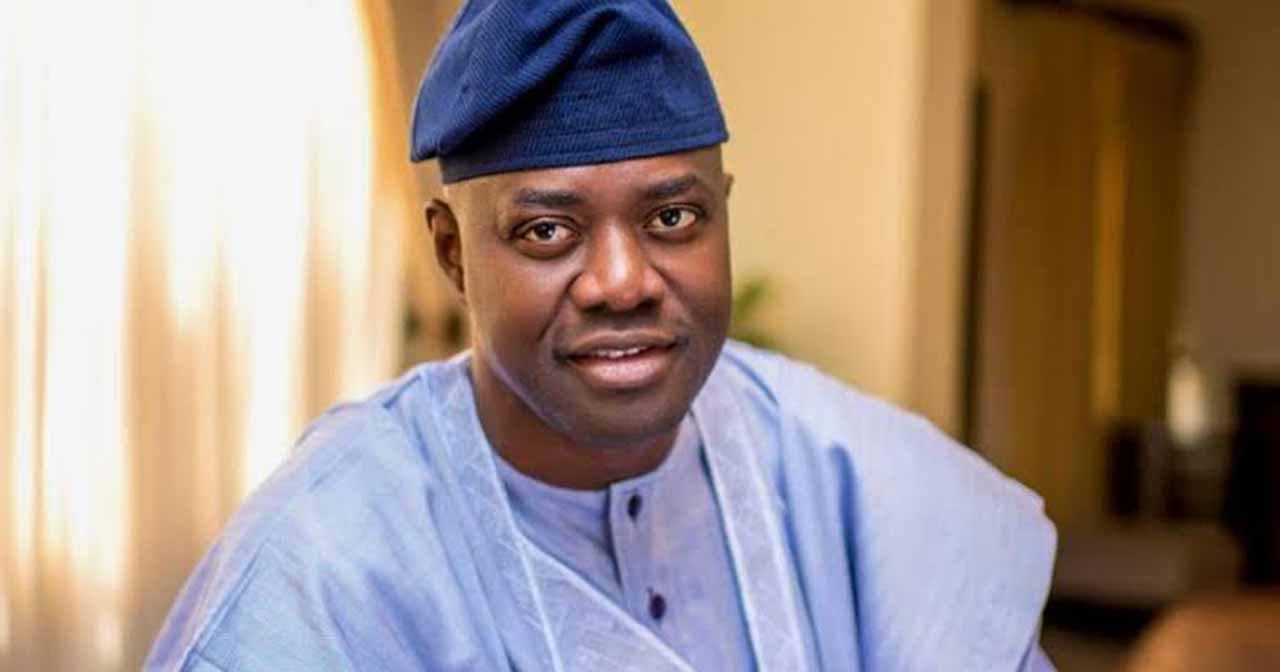
May Day: We’ll not delay action on new minimum wage – Makinde
Oyo State Governor, Seyi Makinde has assured workers that his administration will not delay in implementing the new minimum wage.
Makinde gave the assurance on Wednesday in his address at the 2024 May Day celebrations, held at Lekan Salami Sports Complex, Ibadan.
The governor, who was represented by his deputy, Mr Bayo Lawal, said notwithstanding new minimum wage, his government to fail in its promise of ensuring payment of salaries and pensions on or before 25th of every month.
He said that his administration had been responsive to the welfare of workers, adding that it had also put people at the heart of its policies and programmes.
Acknowledging the importance of labour in the policies, programmes and projects aimed at ensuring the development of the state, Makinde commended the workers for ensuring an atmosphere devoid of incessant industrial actions.
He noted that the cooperation between his government and labour had contributed immensely to the existing development and peaceful atmosphere in the state.
He urged the workers to reciprocate his administration’s good gesture by being more dedicated and committed.
The governor also enjoined them to work ‘tirelessly and vigorously’ for their pay.
-
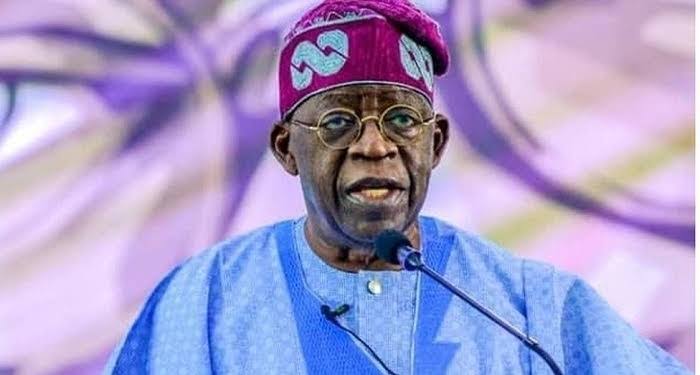
New minimum wage will take effect today – FG promises workers
The Federal government has assured workers that the new minimum wage will take effect from today, May 1, 2024, despite ongoing negotiations within the tripartite committee on national minimum wage.
Addressing Nigerian workers during the May Day celebration in Abuja, Minister of State Labour Nkeiruka Onyejeocha emphasised that although the conclusion of the negotiations is pending, efforts are underway to expedite the process and ensure the timely release of the new minimum wage.
Expressing regret over the delay in finalising the new national minimum wage, Onyejeocha reassured workers that comprehensive consultations are ongoing to facilitate the prompt formulation of the required document.
Both the Nigeria Labour Congress (NLC) and the Trade Union Congress (TUC) have consistently urged President Bola Tinubu’s administration to accelerate the upward adjustment of wage structures.
Recently, Organised Labour has advocated for a new minimum wage of N615,000, citing workers’ need to contend with the prevailing economic challenges and the high cost of living in Nigeria.
The labour unions said the current minimum wage of N30,000 can no longer cater for the wellbeing of an average Nigerian worker, lamenting that not all governors are paying the current wage award which expired in April, five years after the Minimum Wage Act of 2019 was signed by former President Muhammadu Buhari
-

Workers’ Day: Delta Govt to set up committee for wage review
Delta State Governor, Rt. Hon. Sheriff Oborevwori, says his administration would set up a committee to look into workers’ demand for salary increase in view of the current hardship in the country.
Governor Oborevwori stated this in his address at the 2024 Workers’ Day celebration held at the Cenotaph, Asaba, on Wednesday.
He commended workers in the state for their support for the emergence of his administration and for the prevailing industrial harmony across the state.
He said his administration had always prioritised the welfare of workers in the state and promised to look into the issue of workers who were inadvertently omitted in the payment of promotion arrears.
Governor Oborevwori said: “I have listened attentively to your requests and I have taken note of same; they are, no doubt, legitimate demands and as a responsible government, I will deliberate with my team on how best to address them within the limits of resources available to us.
“As a government, we have prioritised the welfare of our workforce because it is my belief that a happy and well motivated workforce is not only a catalyst for the growth and industrial development of any society but also the bedrock for extended family setting and communal cohesion.
“This administration has already demonstrated its commitment to the welfare of serving and retired civil servants and we will continue to do so through our policies and actions.
“This, we have exemplified by the payment of salary arrears to the state civil servants and facilitation of N40 billion facility to assist the local governments to pay the backlog of pensions and gratuity to local government workers and primary school teachers.
“However, I have taken note that some persons were omitted in the payment of promotion arrears; it wasn’t the fault of government because I was given the full list and I was told that the amount is N5.6bn and said let it be paid in four tranches and it was paid, but since the NLC Chairman has mentioned it in his speech, I will look into it.
“We are determined to deliver meaningful projects through aggressive infrastructural development as can be seen from the numerous bridges, flyovers and road construction and reconstruction, building and renovation of schools, healthcare facilities and retooling and capacity building of the workforce and human capital development in general, across board.
“My administration is determined to deliver economic prosperity and an improved standard of living to all Deltans through collaborative effort and constructive engagement with organised labour.
“Therefore, we solicit your unflinching support and cooperation to get us to this promised land and to the Delta State of our dreams.”
Earlier, in a joint address delivered by the State Chairman, Nigeria Labour Congress NLC, Comrade Goodluck Ofobruku , on behalf of his Trade Union Congress counterpart, TUC, Comrade Martin Bolum, the labour leaders commended Governor Sheriff Oborevwori for honouring workers in the state by attending the Workers’ Day in person.
He commended Governor Oborevwori for his commitment to the welfare of workers and pensioners in the state and pledged their continued support for his administration’s MORE Agenda.
The labour leader also lauded the governor for the payment of promotion arrears owed workers to the tune of N5.6 billion, but appealed to him to consider those omitted whose entitlements, they said, tallied at N800 million.
The NLC boss, while appreciating the governor for keeping to his campaign promises to workers, said, “we want promise keeper’s politicians because, as workers, we keep records of promises”.
The 2024 May Day celebration, with theme, “PEOPLE FIRST,” was a carnival- like celebration in the State and featured march past by the various affiliate unions in the state.
-
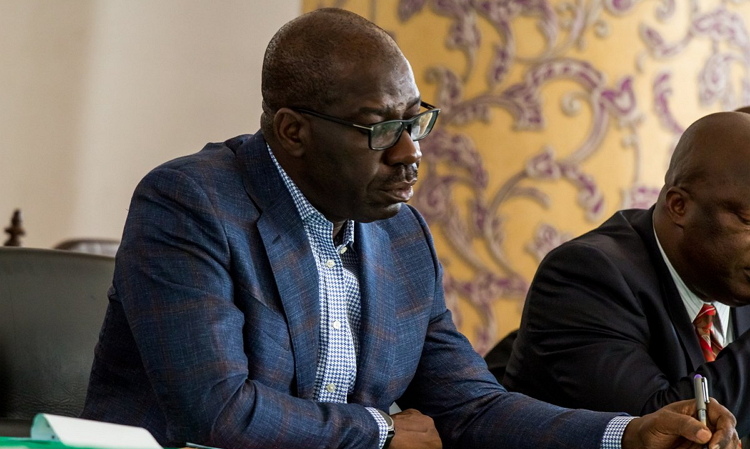
Why I approved N70,000 minimum wage for workers, named new labour house after Oshiomhole – Gov Obaseki
Gov. Godwin Obaseki of Edo on Monday, announced an increase in the Minimum Wage for the Edo state civil servants from N40,000 to N70,000 effective from May 1.
Obaseki disclosed this while inaugurating the newly-built ultra-modern Labour House secretariat complex that would house the various labour unions in Benin.
Obaseki named the new Labour House edifice after his predecessor and former NLC President, Sen. Adams Oshiomhole.
Obaseki also promised to further increase the minimum wage to over N70,000, depending on what the Federal Government would approve as the new minimum wage for workers in Nigeria.
He said, “Edo is currently paying the highest minimum wage of N40,000 in Nigeria.
“But we know that even the N40,000 can no longer take workers home because of the poor economic situation being experienced in the country.
“So, as a government, we will continue to support the agitation for increment in workers’ salaries.
“In solidarity with workers, effective from May 1, we have increased Edo workers’ minimum wage from N40,000 to N70,000 and we will move it up further depending on what the Federal government would approve,” he said.
According to Obaseki, “the commissioning of this labour House and the increment in wage are just a token to say thank you to Edo workers for the harmonious industrial relationship my administration has enjoyed in the last seven and half years.
“The achievements we have recorded in the last seven and half years would not have been possible if not for the cordial relationship with the various labour unions in the state.
“The reforms and projects we have carried out in our various institutions were targeted at improving the productivity of our workers in the state,” he added.
He urged the state labour unions to use the revenue that would be generated from the building for its maintenance.
The keynote speaker, Comrade Joe Ajaero, President, Nigeria Labour Congress (NLC), commended Gov. Obaseki for the increment in minimum wage in the state.
Ajaero said, “NLC and the federal government have not agreed on what should be the new minimum wage for workers, but Edo has taken the lead. It shows that the governor is labour friendly and has empathy for workers,”.
In his lecture titled, “Leveraging the legacies of Pa. Michael Imoudu as a way of fostering harmonious and productive industrial relations, Ajaero said Edo has about the best workforce environment in any public service in the country.
The NLC president, while speaking on the legacies of the late Pa Michael Imoudu, noted that the first labour unionist in the country engaged the colonialists for the betterment of the Nigeria workers.
He explained that he was attacked, harassed, suffered humiliations and was imprisoned by the colonial masters for workers in the country to have better welfare.
Also speaking, President of the Trade Union Congress (TUC), Comrade Festus Osifo, appreciated Gov. Obaseki for all the labour friendly policies and reforms being embarked upon by his administration.
“I can tell you that there are some states in Nigeria whose governors still pay N18,000 minimum wage. They even pay in percentages and determine who to pay and who not to pay. So, Edo has gone ahead with this increment,” he said.
Osifo, who stated that he was proud to be from Edo, thanked the governor for rising above political sentiments and naming the new labour House after Oshiomhole.
Also, the State Head of Service, Anthony Okungbowa, disclosed that the idea of building a labour House to accommodate organised labour in Edo was conceived by former Oshiomhole in 2014.
Okungbowa said, “in view of this vision, Obaseki worked assiduously to make the dream a reality by committing scarce resources, time and efforts into the construction of the ultra modern and state of the art labour House complex.
“The edifice is a masterpiece designed to enable organised labour operate in a conducive atmosphere and engage government constructively in the interest of the workforce,” Okungbowa said.
Earlier in his welcome address, the State Chairman of Edo NLC, Comrade Odion Olaye, thanked the governor for the kind gesture and magnanimity, adding that workers had long waited for inauguration of the project.
-
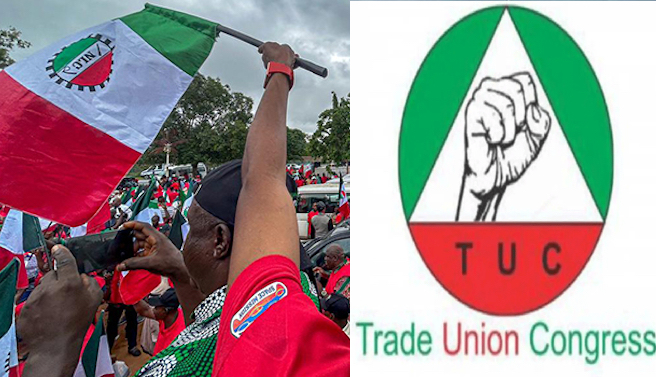
FACT CHECK: Has FG agreed on N155,000 minimum wage with labour unions?
CLAIM: A post on X (formerly Twitter) by one Ayofe on March 26, claimed that the Federal Government has agreed on N155,000 minimum wage with the Nigeria Labour Union (NLC) and the Trade Union Congress (TUC).
The X user said both the NLC and TUC leaders had thanked all the members involved in the negotiations during a press conference.
“BREAKING NEWS:-
The Federal Government has agreed on 155k as the new national minimum wage the NLC & TUC chairmen respectively thanked all the members involved in the negotiations in a press conference and urged the Federal Government and state governments to implement the minimum wage as earlier agreed on more details shortly…,’ claimed Ayofe in the post.
As of March 28, more than 200,000 other users have viewed the post with 301 retweets. Similarly, the post has garnered 414 comments with over 1000 likes and 62 bookmarks.
This post has been generating mixed reactions from other X users with many believing the story while others expressed doubt.
https://x.com/abdullahayofel/status/1772720739583443399?t=RqQqvD0djT2JPaESxkfiww&s=08
The same claim is also being circulated on WhatsApp and credited to the Punch Newspaper.
VERIFICATION: Checks by NAN reveals that an accord is yet to be reached amongst the 37-man Tripartite Committee for the implementation of a new minimum wage.
The committee according to the release of the Federal Government comprised representatives of the Federal and State Governments, Employers as well as the Labour.
More so, there has not been any press statement issued by any of the parties involved in the negotiations or a news report from any credible news platform on the purported agreement.
Speaking with the Head of Information, NLC, Mr Benson Upah, told the News Agency of Nigeria (NAN) that he was not aware of such development.
Similarly, the Deputy President I, TUC, Dr. Tommy Okon, said the social media user, who posted the claim was only being sensational.
Okon said as a leader in the TUC, he was not aware of such an agreement.
“Maybe they agree with their own union (social media user), because for us, there is nothing like that.
“There is nothing like that at all. I am not surprised because social media (users) can decide to write anything and send it because there is no censorship.
“It is garbage in, garbage out; they can put anything, but it is unfortunate that we are still spreading false information.
“That is not true; it is mischievous. We have not even started negotiating with the government on the minimum wage.
“Let them not mislead the public,” said the TUC deputy president.
Also when a search was conducted on the site of the newspaper, such report was not found on the news site.
VERDICT: The claim that the Federal Government has agreed on N155,000 as new minimum wage with the leadership of the organised labour is FALSE. While a tripartite committee including the representatives of the governments, labour and the employers, has been inaugurated for negotiations, no agreement is yet to be reached.